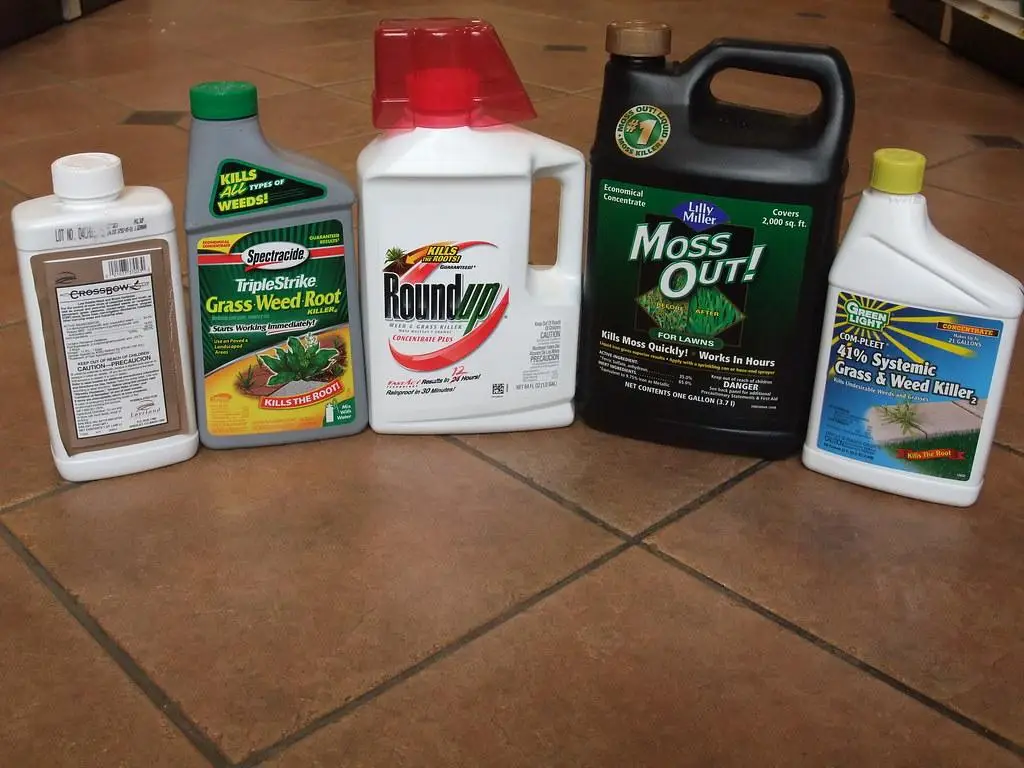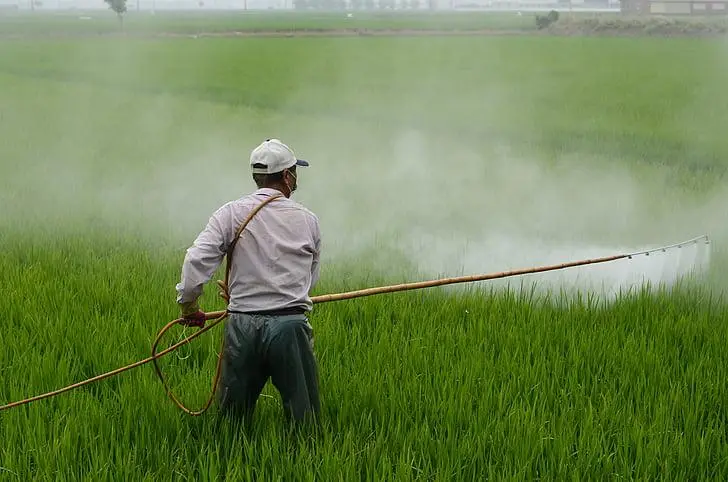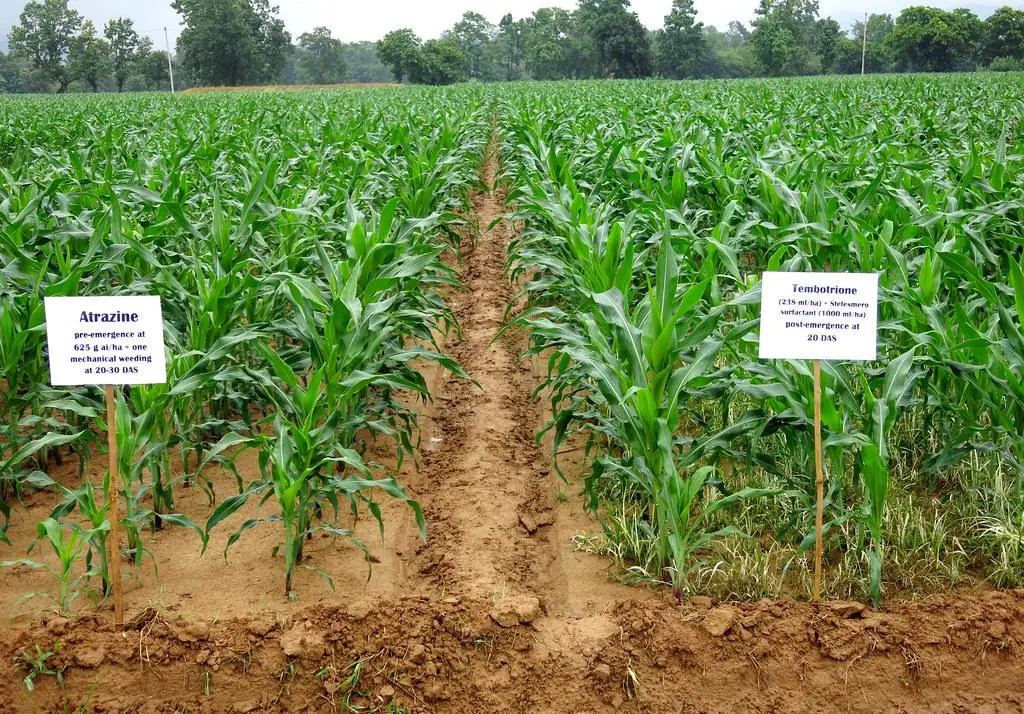Are you curious about the impact of herbicides on your health? The YouTube video “The Lowdown on Herbicides and Your Health” delves into the relationship between herbicides, like glyphosate in Roundup, and our well-being. The video discusses how these chemicals can be found in the blood and urine of nearly everyone, with potential effects on gut microbes and overall health. While the data shows a correlation between higher herbicide levels and certain health markers, it’s essential to weigh the risks against the benefits of a diet rich in fruits and vegetables. Join me as we explore the nuanced discussion surrounding herbicides and their potential impact on our health.
The Impact of Herbicides on Human Health

In recent studies, it has been found that nearly everyone has detectable levels of herbicides in their blood and urine, with about 50% of people showing traces of glyphosate, the active ingredient in Roundup. Researchers delved into the impact of these herbicides on gut microbes and found significant differences between individuals with high and low levels of exposure. Those with higher levels, often attributed to consuming more fruits and vegetables, showcased varying gut microbe compositions, suggesting a direct correlation.
While it may be tempting to cut back on fruits and vegetables to avoid herbicide exposure, the benefits of a plant-based diet are well-established. Research shows that individuals who consume a diet rich in fruits and vegetables are likely to live longer, with reduced risks of heart disease, diabetes, and dementia. The fiber, polyphenols, and other essential nutrients found in plants play a crucial role in maintaining overall health.
Although there is evidence of a potential increase in cancer risk associated with herbicide exposure, the overall impact is relatively small in the grand scheme of health outcomes. Non-Hodgkin’s Lymphoma, one of the cancers linked to herbicides, is considered rare, further emphasizing the negligible risk for most individuals. The decision to prioritize a diet rich in fruits and vegetables, even if non-organic, outweighs the minimal potential risks from herbicide exposure.
Ultimately, while the discussion around herbicides and their impact on health is important, it is crucial to consider the overall benefits of a plant-based diet. Making informed choices about food consumption, particularly during critical life stages such as pregnancy and early childhood, can help mitigate any potential risks from herbicide exposure and prioritize long-term health and well-being.
Understanding the Correlation Between Diet and Herbicide Exposure

So in your blood and urine, nearly everyone’s got these insecticides, and about 50% of people had detectable levels of herbicides like glyphosate from Roundup. We looked to the gut microbes to see if these chemicals were having an effect, and there was a clear correlation. People with higher exposure levels, likely from consuming more fruits and vegetables, also had different changes in their gut microbes, producing different chemicals in response.
Some might think that giving up fruits and vegetables and going back to a diet high in meat and saturated fats to avoid potential risks associated with herbicides is the solution. However, studies show that people who eat lots of fruits and vegetables, compared to those on ultra-processed diets with minimal fiber, are likely to live longer, have a lower risk of chronic diseases like heart disease, diabetes, and dementia, and weigh less.
While there may be a possible 10% increase in cancer risk associated with herbicide exposure, this small risk compared to the overall health benefits of consuming a plant-based diet. The advantages of eating fruits and vegetables outweigh any potential risks for most individuals. It’s important to consider these factors, especially during critical times like pregnancy or feeding young children, when avoiding unnecessary chemicals should be a priority.
The Importance of Fruits and Vegetables in a Healthy Diet

So in your blood and urine nearly everyone’s got these insecticides and about 50% of people had detectable levels of these herbicides, such as glyphosate (Roundup). We looked to the gut microbes to see if these chemicals were having an effect, and there was a clear correlation. People who are eating more fruits and vegetables had higher levels of these chemicals and also had different changes in their gut microbes that produced different chemicals in response.
If you’re thinking of giving up fruits and vegetables and going back to a diet with more meat and saturated fat to avoid the potential risks of herbicides, think again. People who eat lots of fruits and vegetables compared to those on ultra-processed food diets are likely to live 10 years longer and have half the risk of heart disease, diabetes, dementia, and other chronic diseases. The fiber, plants, and polyphenols found in fruits and vegetables are crucial for our overall health.
While there may be a possible 10% increase in cancer risk associated with herbicides, the benefits of eating fruits and vegetables far outweigh this minimal risk. Additionally, not every cancer is affected by herbicide exposure, and the lifetime risk for most is fairly low. It’s essential to continue including fruits and vegetables in our diets, especially during critical times like pregnancy and when feeding young children, to avoid unnecessary exposure to unwanted chemicals with potential harmful effects.
Balancing the Risks of Herbicides with the Benefits of Plant-Based Foods

In our modern world, herbicides are ubiquitous, seeping into our blood and urine through the fruits and vegetables we consume. Approximately 50% of people have detectable levels of herbicides like glyphosate, the active ingredient in Roundup. These chemicals do have an impact on our gut microbes, with differences between individuals with high versus low exposure levels. People with higher levels of herbicides in their system also display changes in their gut microbiome, which can affect overall health.
While it might be tempting to swear off fruits and vegetables to avoid herbicides, it’s important to remember the immense benefits of plant-based foods. Those who consume a diet rich in fruits and vegetables are likely to live longer and have a lower risk of chronic diseases such as heart disease, diabetes, and dementia. The fiber and polyphenols found in plants play a crucial role in maintaining optimal health.
The potential increase in cancer risk associated with herbicide exposure is relatively small in the grand scheme of things. We are talking about a 10% increase in risk for certain types of cancer, which may only become significant with regular and prolonged exposure. The key is to weigh the risks and benefits and make informed choices when it comes to consuming plant-based foods.
Considerations for Vulnerable Populations: Pregnant Women and Young Children

In their blood and urine, nearly everyone has detectable levels of herbicides, including glyphosate found in products like Roundup. In fact, about 50% of people have detectable levels of these chemicals. When studying the effects of these herbicides on gut microbes, researchers found that high levels of exposure were correlated with changes in gut microbe composition. Individuals with higher levels of herbicides also tended to consume more fruits and vegetables, which impacted their gut microbe production.
While it may seem tempting to reduce fruit and vegetable intake to avoid exposure to herbicides, it’s essential to consider the overall health benefits of a diet rich in plant-based foods. Studies have shown that individuals who consume a diet high in fruits and vegetables are likely to live longer, have a reduced risk of chronic diseases like heart disease, diabetes, and dementia, and maintain a healthy weight.
Although there may be a slight increase in cancer risk associated with herbicide exposure, the overall risk is relatively low, especially when compared to the numerous health benefits of a plant-based diet. It’s important to prioritize consuming fruits and vegetables, especially during critical life stages like pregnancy and early childhood, where avoiding unnecessary chemical exposure is crucial for both maternal and child health.
Long-Term Effects of Herbicide Exposure: What We Know and What We Don’t

The long-term effects of herbicide exposure can have significant implications on our health. Research has shown that these chemicals, such as glyphosate found in Roundup, can be detected in the blood and urine of nearly everyone. Approximately half of the population has detectable levels of herbicides in their systems, with those who consume more fruits and vegetables showing higher levels.
Furthermore, studies have found a correlation between herbicide exposure and changes in gut microbes. People with higher levels of these chemicals in their bodies had differing gut microbe compositions compared to those with lower levels. While this may raise concerns about consuming fruits and vegetables, it’s important to note that the benefits of a plant-rich diet far outweigh the potential risks.
Despite the potential increase in cancer risk associated with herbicides, which is relatively small for most individuals, the overall health benefits of consuming a diet rich in fruits and vegetables are well-documented. The fiber, polyphenols, and other nutrients found in plants are essential for overall health and can help reduce the risk of chronic diseases such as heart disease, diabetes, and dementia.
Q&A
Q: What are herbicides and why are they a concern for our health?
A: Herbicides are chemicals used to kill unwanted plants, but they can also end up in our food and water supply, leading to potential health risks.
Q: How do herbicides like glyphosate affect our bodies?
A: Studies have shown that herbicides like glyphosate can be found in our blood and urine, with higher levels detected in people who consume more fruits and vegetables. These chemicals can also impact our gut microbes and potentially increase the risk of certain cancers.
Q: Should we stop eating fruits and vegetables to avoid herbicide exposure?
A: While it’s important to be aware of potential risks, the health benefits of consuming fruits and vegetables far outweigh the potential harm from herbicide exposure. It’s recommended to continue eating a diet rich in plants while being mindful of pesticide exposure.
Q: What are some of the long-term risks associated with herbicide exposure?
A: While the increased risk of cancer is a concern, it’s important to note that the overall risk is relatively small for most people. However, it’s particularly important to consider potential risks during critical times such as pregnancy and early childhood development.
Q: How can we minimize our exposure to herbicides?
A: Choosing organic produce, washing fruits and vegetables thoroughly, and supporting policies that regulate pesticide use are some ways to reduce exposure to herbicides. It’s also important to advocate for sustainable farming practices that prioritize human health and the environment.
In Summary
In conclusion, the discussion around herbicides and their potential impact on our health is a complex one. While it’s important to be aware of the presence of these chemicals in our bodies, it’s equally important to consider the overall benefits of a diet rich in fruits and vegetables. Making informed choices and understanding the potential risks can help us navigate this issue with a balanced perspective. Remember, the key is to prioritize our health while enjoying a variety of nutritious foods. Stay informed, stay mindful, and make choices that align with your well-being. Thank you for tuning in to “The Lowdown on Herbicides and Your Health” – may your health and happiness always come first.




Pingback: health department near me - Dr Strong